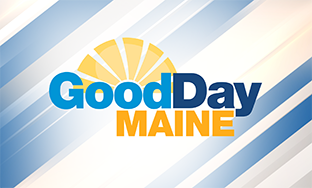
Question 1: We know the Secretary of State’s office helps run everything related to voting, but what specifically does that mean?
The Bureau of Corporations, Elections and Commissions is part of the Secretary of State’s office.
They create, proofread and mail out ballots. They tally up the results and supervise recounts if the race is really close. They give advice to city and county election workers.
Separately, there’s also a Commission on Governmental Ethics and Election Practices that makes sure campaign finance and lobbying rules are followed, mostly at the local/state level.
Question 2: Who runs these offices? How much money do they make?
Julie Flynn made $170,000 last year. That’s the most in the Maine secretary of state office. The actual secretary of state only makes $125,000.
But she’s done a lot to earn that salary. She’s helped run Maine’s elections for 24 years and served under five different Secretaries of State - including Charlie Summers, who told Spectrum News “no one in America” knows more about election laws than Julie Flynn.
There are 13 other election specialists on the payroll making up to $98,000. Some of them are just getting small stipends though.
The Commission on Governmental Ethics and Election Practices is only five people plus a secretary making $67,000 to $115,000.
Question 3: How much has Maine spent to run its elections the last few years?
Maine sent almost $9 million to the company Election Systems & Software from 2017 to 2023. They provide the lease for the state’s voting machines and print out ballots.
Maine also got $7.5 million since 2018 from the federal government to improve election security by holding training courses for poll workers and improving security systems both physical and online.
But it’s possible they could still use some more funds. Nearly every voting machine in Maine is at least 10 years old, according to
Verified Voting. There’s only four other states (Connecticut, New Hampshire, Louisiana and Oklahoma) where every single city uses voting machines that old. A lot of it is concentrated in New England. Vermont and New Hampshire are entirely using machines from 2006, and so is a good portion of Massachusetts.
The
Brennan Center for Justice estimates it would cost $203 million to replace voting equipment 10 years or older nationwide. But there’s no set allocations for election spending. It gets doled out on a case-by-case basis, and according to the Brennan Center often only in “desperate situations.”
Question 4: With outdated voting machines, how does the state make sure elections are secure? Is there any real risk of having inaccurate results?
In Maine the voting machines are
not connected to the Internet. So the only way to “hack” the voting machines would be to get directly into the software running the machines, and someone would need highly-confidential info protected by state and federal law.
The paper ballots are kept secure and transferred to the Election Commission to apply the ranked-choice voting rules if no one wins a majority of the votes. That software formula is also secret.
But to be extra safe, the Legislature passed a
law a couple of years ago that allows the Maine Secretary of State to audit the election results starting with this year. If the audit happens, officers will manually review paper ballots to make sure they match voting machine results, and speak with poll workers to ensure the paper ballots were not tampered with.